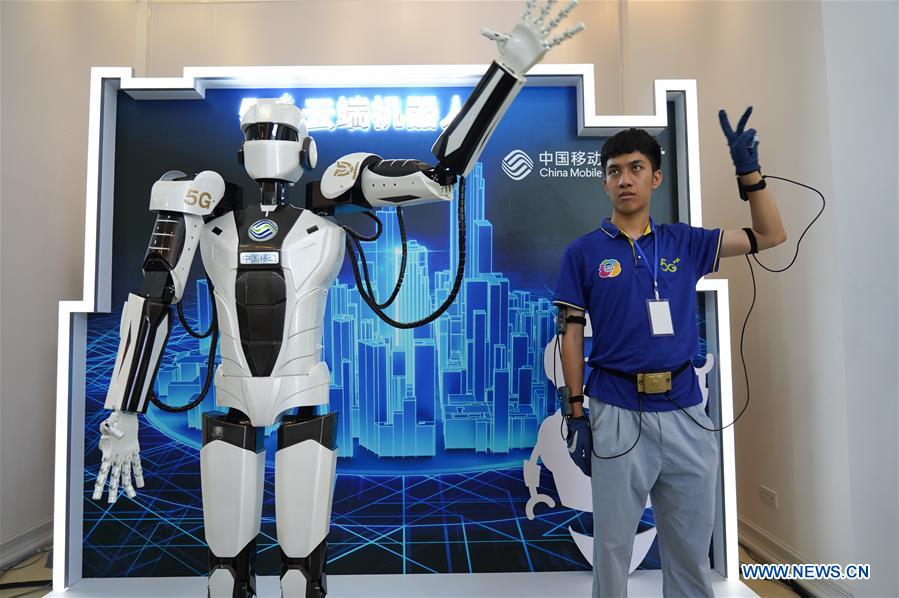China seeks to expand IoT applications into more areas
China plans to have more than 2 billion connections for its Internet of Things (IoT) by 2023, according to an action plan jointly formulated and released by the Ministry of Industry and Information Technology (MIIT) and seven other ministries.

A staff member controls a robot with 5G technology during Jiangxi International Mobile Internet of Things Expo 2019 in Yingtan, east China's Jiangxi Province, July 18, 2019. (Xinhua/Zhou Mi)
The plan indicated that by the end of 2023, the country will have made breakthroughs in core technology bottlenecks for the development of its IoT, cultivating a batch of IoT entities and operators, developing IoT operational and service models that are duplicable, promotable and sustainable, and establishing a comprehensive set of standards and security protection systems.
In Siyang county, east China’s Jiangsu province, a flood warning system supported with 5G and IoT technologies played a helpful role in facilitating local flood prevention personnel to quickly deal with the floods that hit the county in July 2021.
When the floods hit, a sensor installed in the system collected data about the precipitation, the water level and accumulated surface water in the flood zone, and then transmitted this information to the control center on a real-time basis as well as being fed into a notification platform to enable the flood control headquarters to take precise and prompt actions.
“In the past, we sent personnel to check the severity of flood disasters; nowadays, with the help of the flood warning system, we can know about the information more conveniently,” expressed Deng Limin, head of the flood and drought prevention office of Siyang county.
In addition to offering a hand in smart city construction, IoT is also able to provide solutions for smart living when it works together with other technologies, including 5G and artificial intelligence.
A smart living scenario powered by IoT caught significant attention at a recent conference focusing on intelligent technologies held by the IoT department of Midea Group, a Chinese home appliance giant.
“Based on our research on virtual reality, artificial reality and artificial intelligence, we’ve created a smart home for our users,” said Wang Yueming, an engineer with the IoT department at Midea. According to Wang, a variety of smart home solutions can be created with the use of these advanced technologies, generating an immersive virtual world for users.
IoT is also being widely applied into security and protection systems and the solving of traffic problems. Statistics by the China Industrial Development Institute indicated that the value of the IoT industry in China reached 1.66 trillion yuan in 2020, and the figure is expected to exceed 2.12 trillion yuan by 2022. As a new trend in urbanization, smart city construction is moving forward at an ever-faster speed, driven by the rapid roll-out of IoT and other technologies.
Photos
Copyright © 2021 People's Daily Online. All Rights Reserved.










